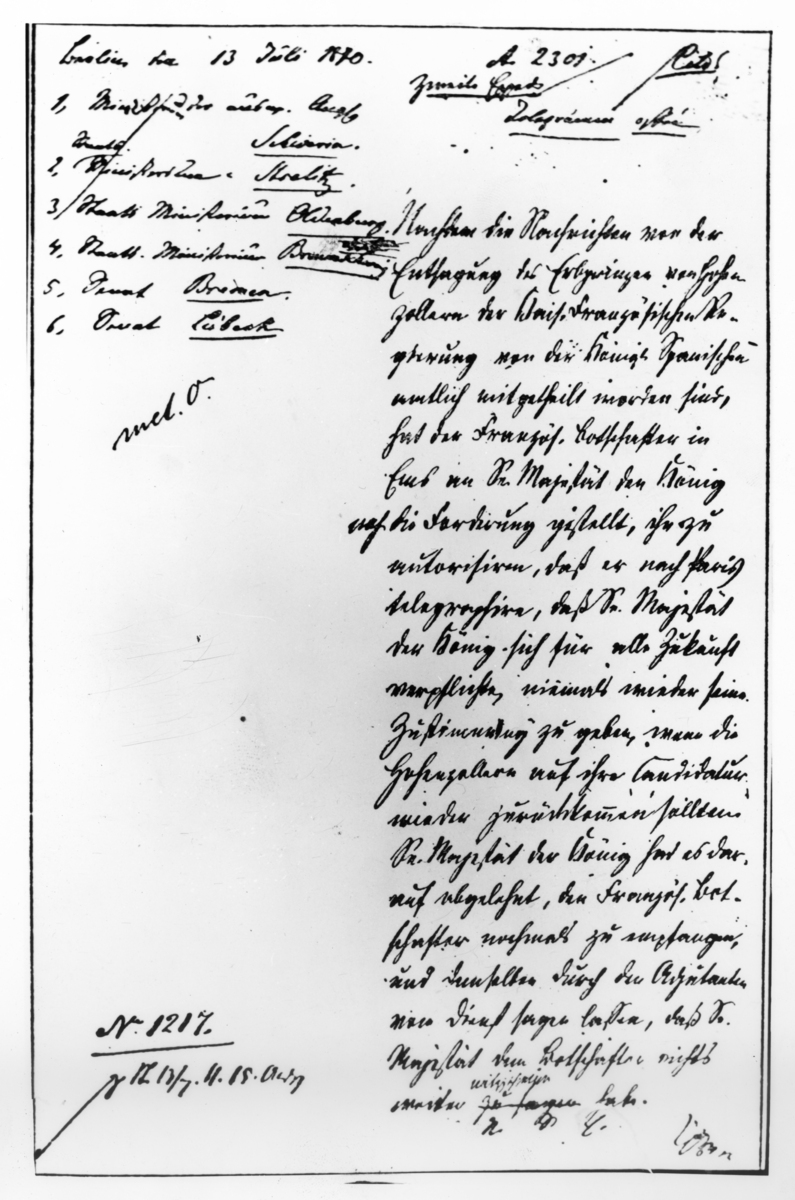Abstract
Bismarck’s abridgment of the original Ems Dispatch provided the
French with a casus belli that led to
war with Prussia and the other German states in 1870–71. The extent of
Bismarck’s editing can be seen in this facsimile of the abbreviated
version meant for Prussian envoys in Germany’s other federal states and,
more importantly, for public consumption. The revised text reads: “After
the reports of the renunciation by the hereditary Prince of Hohenzollern
had been officially transmitted by the Royal Government of Spain to the
Imperial Government of France, the French Ambassador [Benedetti]
presented to His Majesty the King [Wilhelm I] at Ems the demand to
authorize him to telegraph to Paris that His Majesty the King would
obligate himself for all future time never again to give his approval to
the candidacy of the Hohenzollerns should it be renewed. His Majesty the
King thereupon refused to receive the French envoy again and informed
him through an adjutant that His Majesty has nothing further to say to
the Ambassador.” As Bismarck expected, this much shorter version
convinced Prussia’s allies and the German public that the French had
presented Wilhelm I with a demeaning and unacceptable ultimatum.
Conversely—as Bismarck also intended—the French interpreted the edited
telegram as evidence that Wilhelm had rudely rejected a sincere French
effort to resolve a diplomatic crisis. The honor of both sides was
offended, but France more willingly played the part of the aggrieved
victim by declaring war on Prussia a few days later. The military
showdown between the German states and their “archenemy”
[Erbfeind] across the Rhine was
finally at hand. Facsimile from the files of the Political Archive of
the German Foreign Office.
